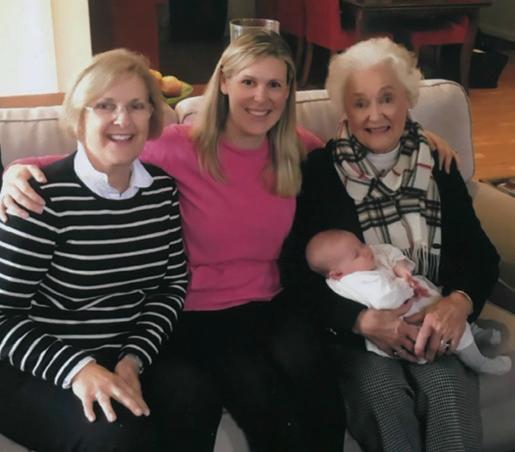
4 minute read
Principal’s Thoughts
Our School motto, Semper Verus, calls us to be Always True.
The concept of truth has been the study of philosophers, scholars and theologians for centuries. Telling the truth has been the accepted measure of individual integrity and virtue. Honesty has characterised great leadership and underpinned the fidelity of relationships.
Advertisement
Yet truth, in the 21st century, is becoming an increasingly nebulous construct. The Oxford Dictionaries named “post-truth” its 2016 Word of the Year. Post truth has become an increasingly familiar parlance when describing our current global climate and political debate. We are told that we live in a “post truth world” where objective facts are less influential than appeals to individual beliefs or emotional agendas.
In essence, if a statement aligns with one’s personal opinions and prevailing mindset, it is inclined to be taken as true. Similarly, individuals are more likely to dismiss information that challenges their preferred world view. rhetoric, and preferential predilection. News media curate their content to targeted audiences via algorithms that create filter bubbles which respond to our prior preferences and insulate us from data and information that does not align with our personal values. It is rare to be exposed to contrary viewpoints. As a result, we are witnessing increasingly homogenised and polarised communities across the globe. What we read and discuss confirms what we already believe.
According to UNICEF, children form over a third of the world’s internet users. How to support young people to navigate misinformation and sort fact from opinion is a key challenge for educators in the years ahead.
In a perfect world, the internet would offer a range of views and insights but in an era when the integrity of information is questionable, it is incumbent upon us to develop in our girls open mindedness, a healthy scepticism and a willingness to challenge internal biases. It is not our responsibility to determine their political persuasion or alliances. Rather we must teach them to be enquiring and use their voices to bring attention to issues that have significance for them. To try to make the world a little fairer, kinder and more balanced.
We are ambitious for our students, believing girls can and should aspire to be the best they can be. This means being curious; thinking deeply about the world and having the courage to seek answers to questions.
I recently had the opportunity to hear from two Year 11 students Ella Haseldine and Havana George who learnt of Kate Cormack Brown. Kate was the second daughter of James and Mary Brown who tragically took her own life at a young age of 31 after a lengthy battle with melancholia.
Before our meeting, the girls had spent significant time researching Kate’s life and why she had not been remembered the same way as the other Misses Browns. Their findings were insightful and well documented. While Kate was referenced by Mrs Marjorie Scales in The Wilderness, she has often been left out of the common narrative about the history of our School.
The girls wished to acknowledge her as a recognised member of our founding family but were concerned that this might be a version of the Wilderness story we may not wish to revisit.
Yet Wilderness students are encouraged to be Always True.
In our current climate this lesson is even more important. We must never be scared to face the truth even if it is uncomfortable or challenges long established histories. As the adults in our girls’ lives it is important to support their search for truth. To celebrate their willingness to explore, ask questions and continue to challenge accepted orthodoxy.
Over the past century the opinions and attitudes towards mental illness have been complex and quite contradictory, with society demonstrating a mixture of both fear and concern. This was the time in which the Misses Brown lived and maybe the reason for their reticence.
We are incredibly fortunate that these widespread views have significantly changed. People who live with a mental illness still experience stigma

and some discrimination, but it is students like Ella and Havana who are courageously advocating for this to change.
It is important to the girls that Kate is respectfully commemorated and that her story helps make a difference. In light of this, and with support from the Old Scholar’s Association, we are pleased to share that we will plant a new Carob tree in the Wilderness grounds in her memory.
The Misses Brown were always steadfast in their pursuit for change and for making the world a better place. In a prevailing context of “post truth”, it crucial to continue this legacy. Kate’s story belongs to the Brown family and through them to our Wilderness School community, past, present and future.
When singing our School song, we pledge ‘unflinching truth in everything’. If this sits at the heart of our communal promise, it surely has veracity in 2020.










